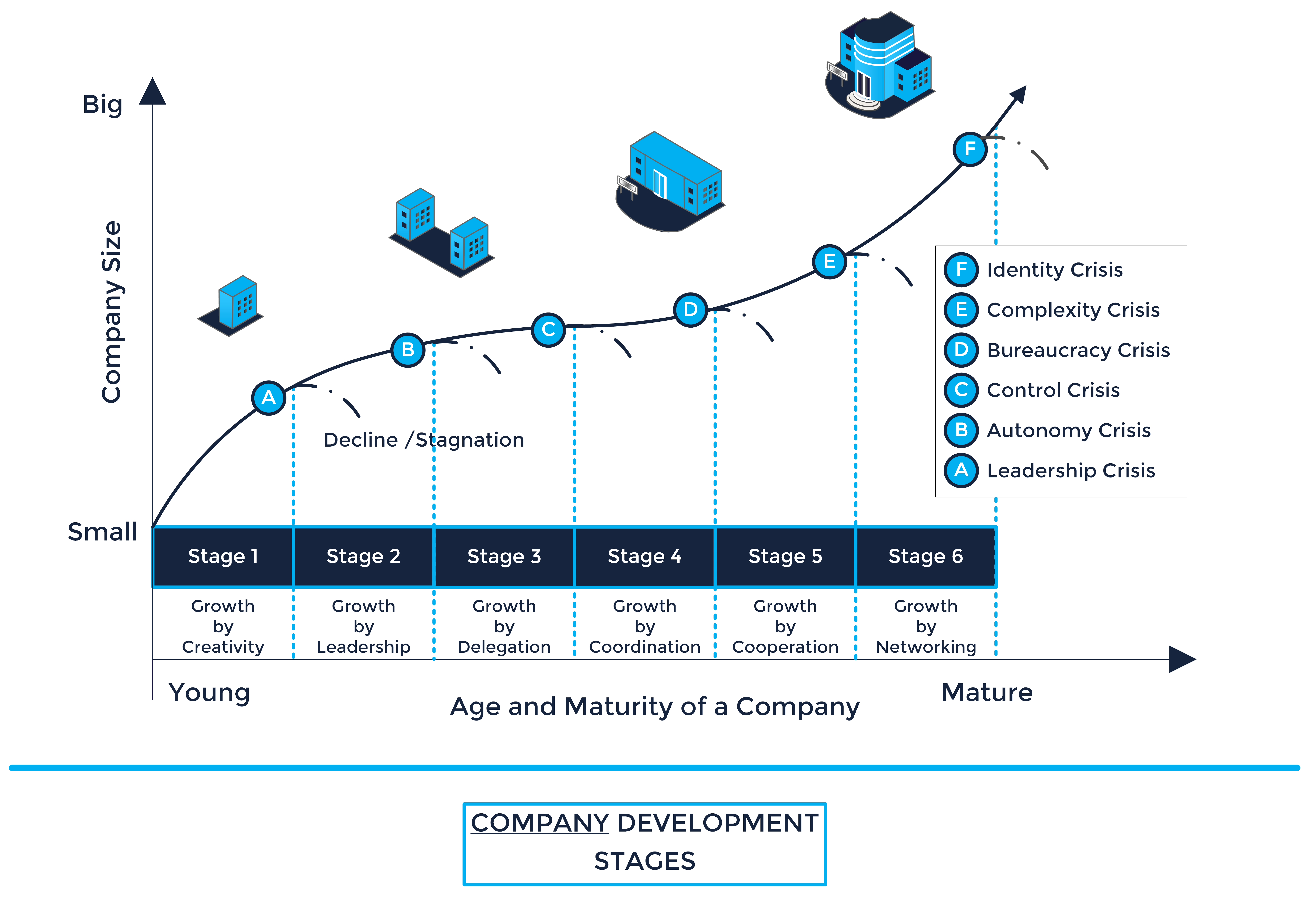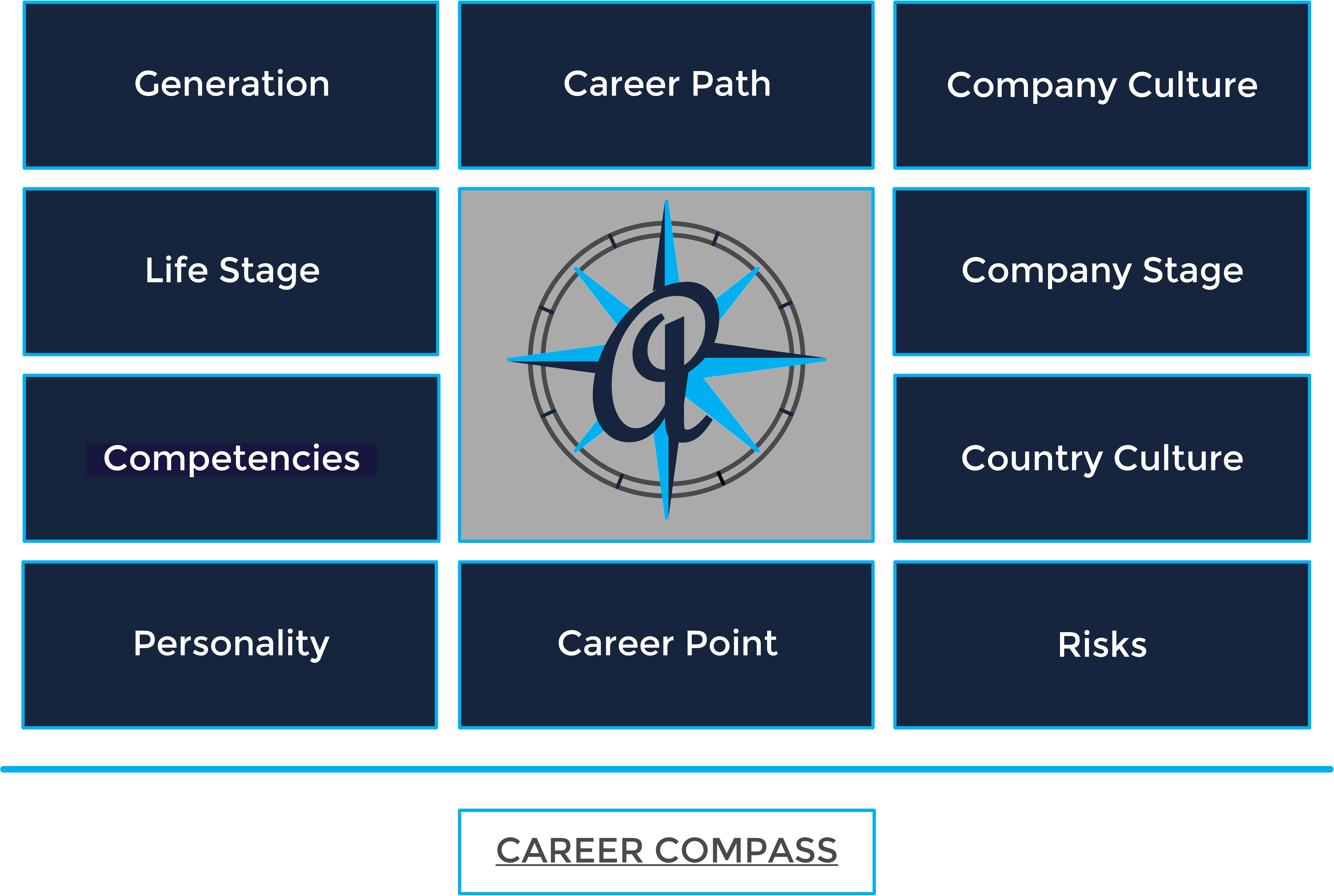How is your company's economic development?
Your
Company
Phase

Growth through creativity
Your company is in a phase of creativity and innovation, as is often the case with start-ups. This phase is driven by the founders, who are focused and motivated to implement their own business idea. Decisions are made quickly, informally and straightforwardly by the founders. This creative chaos is currently reaching the limits of growth as more and more employees are brought on board. Due to a lack of guardrails, they can no longer be managed in a goal-oriented manner. This Leadership crisis can only be resolved by building up management and structures, as the founders can no longer control everything themselves.
Growth through leadership
In this phase of your company, it continues to be strongly influenced by the founders or by executives who have been part of the employee base since the founding phase. The founders divide up the essential areas of operations, finance and leadership. As tasks become more specialized, the generalist thinking of the early days is replaced and the autonomy of the individual players is reduced. This can lead to tensions and a Autonomy crisis This crisis can be overcome by further standardizing processes, establishing hierarchical levels, and clearly defining responsibilities and budgets.
Growth through delegation
In this phase, hierarchies and structures are formed in your company in the form of divisions and departments. Responsibility is handed over, tasks are delegated downwards. This makes simple day-to-day business more complex, as more and more people have to be asked and involved in decisions. Business areas, profit and cost centers, cross-divisional functions and regional responsibilities are created.
The increasing self-sufficiency of divisions, departments and business units threatens a loss of control. This can result in a Control crisis The result is that the company's overriding interests are overshadowed by turf wars.
To combat this situation, managers must invest more time in personnel support and development. Leadership tasks are now characterized by moderation and monitoring tasks.
Growth through coordination
At this stage, your company has already achieved group structures. Your company is clearly divided into lines of business, divisions and departments. The measurability of success becomes visible through group-wide controlling with a system of key figures. Rules and regulations have replaced flexibility and short official channels. An excess of this situation leads to a Bureaucracy crisis. Decisions take too long and innovations are slowed down and hindered.
To counteract this, bureaucratic structures must be broken up again. Instead of "container" thinking, the company must be aligned in the sense of a corporate identity.
Growth through cooperation
The transformation of your company from a coordinated to a cooperating organization in the form of a matrix structure poses major challenges, especially for long-serving employees who helped to establish and develop the existing system. Whereas processes and responsibilities were previously clearly governed by disciplinary rules, these are now partially dissolved within the framework of a matrix and replaced by functional management. One danger in this situation is that overly prescribed collaboration among the departments could lead to a Complexity crisis. Mastering this complexity therefore requires managers and employees to have well-developed soft skills such as personal responsibility, self-discipline, empathy and social control.
Growth through networking
Further growth of your company can be achieved after successful matrix implementation in the internal cooperation phase through cross-company alliances, joint ventures and networks. Through these, flexibility is increased and the ability to innovate is enhanced, since knowledge cannot be generated within your company but can be bought in. This allows your company to focus on its core activities. One problem in this phase can be a loss of identity. In the identity crisis, confusion increases and transparency decreases. Corporate boundaries become blurred, responsibilities and accountabilities seem unclear.
"Your time is limited. Don't waste it living someone else's life."
Steve Jobs

